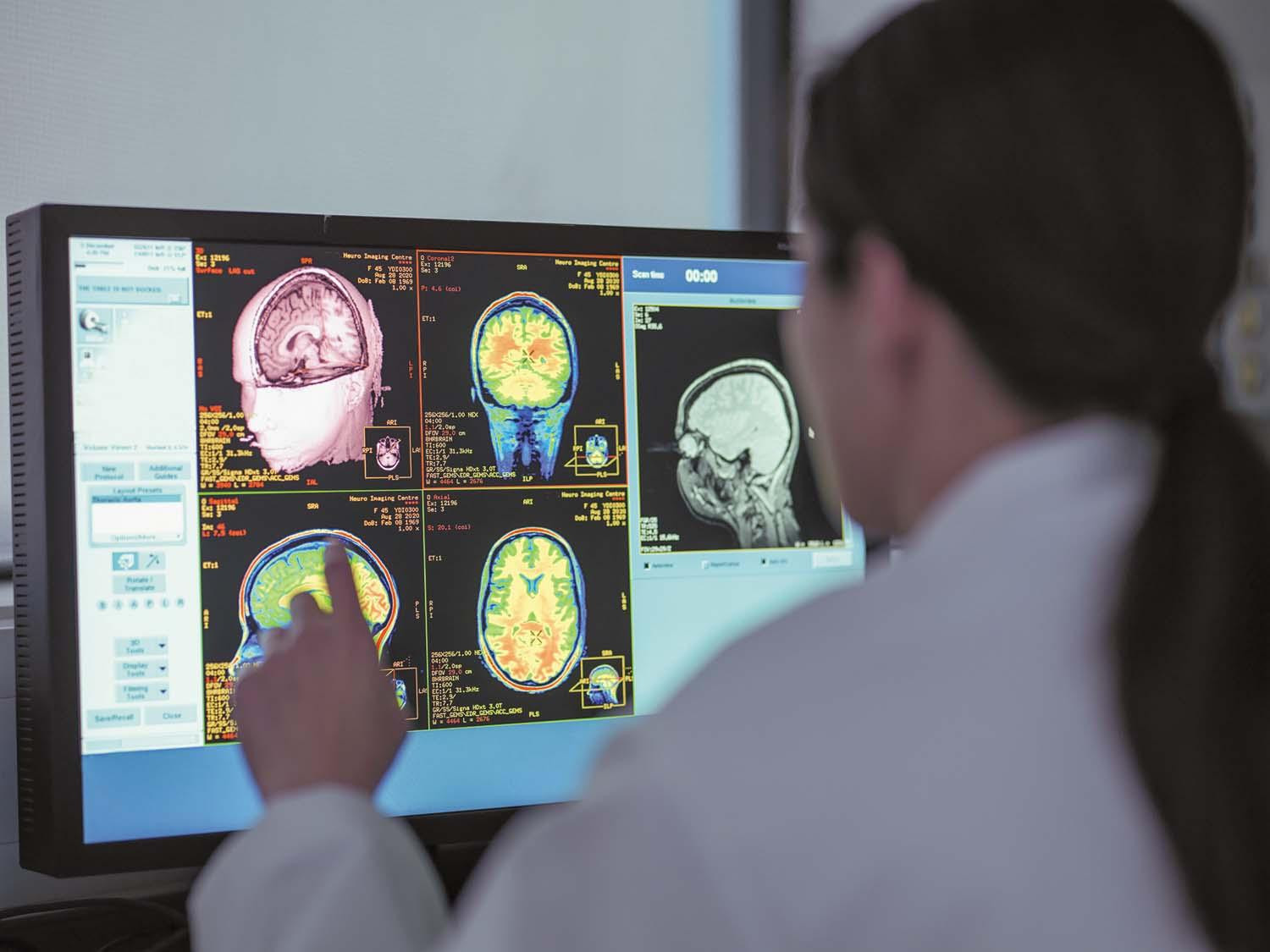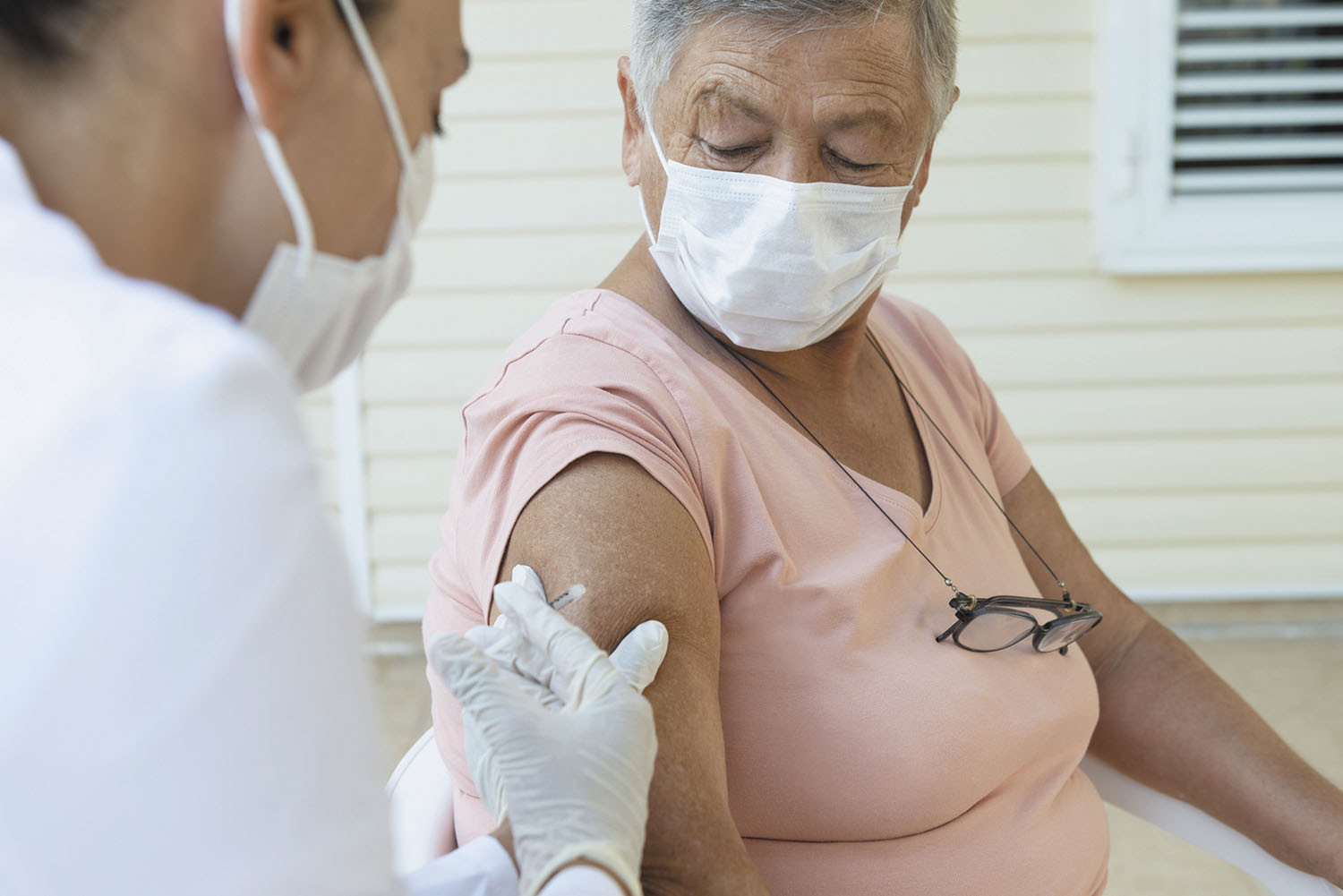
New thinking about plaque in arteries that feed the brain

Want to prevent shifting teeth? Maybe you need retainers

What you need to know about the new dietary guidelines

Food that’s healthier for people and planet can be cheaper, too

New evidence that polyphenol-rich foods help the heart

8 simple ways to reduce ultra-processed foods in your diet

How to curb your stress eating

How to spot Parkinson’s disease symptoms

Heart failure symptoms in women: How they’re different

GERD diet: Foods to avoid to reduce acid reflux
Immune System Archive
Articles
Can our brain talk to our immune system?
A 2025 study of 250 people found that the brain can tell the immune system to prepare for impending infection even before a microbe enters the body. Scientists asked volunteers to don virtual reality headsets that showed various virtual people approaching them. Some of those approaching appeared to be healthy and others appeared to be sick. Brain scans and blood tests showed that participants’ brains activated their immune systems when a virtual sick person simply came near them.
Why do we need new flu shots every year?
With influenza virus, a new vaccine must be developed each year to adapt to the virus’s changing structure.
Stopping sepsis in its tracks
Sepsis causes or contributes to an estimated 20% of all deaths worldwide. The condition begins with an infection that spreads and over activates the immune system, which releases damaging inflammatory chemicals that lead to organ failure. Any infection can trigger sepsis, but those that begin in the lungs, urinary tract, gastrointestinal tract, or skin are more likely to do so. Older people are more susceptible to sepsis. The condition may be avoided by stopping bacterial or viral infections from occurring or worsening.
Celiac disease: Exploring four myths
While medical knowledge on celiac disease has evolved over the past few decades, there are still aspects that remain poorly understood. Perhaps not surprisingly, misconceptions are widespread among the general public.
Boosting your child's immune system
As children go through another school year under the cloud of the COVID-19 pandemic, parents are asking what they can do to keep their children healthy. While no magic solutions can ward off every illness, parents can take steps to help children — and everyone in their household — protect their health by keeping their immune systems robust.
COVID-19 vaccination may lower the risk for long COVID
People who received a COVID vaccine during the first two years of the pandemic had a lower risk of developing long COVID, according to a 2024 study.
What is sepsis?
Sepsis is the immune system's overwhelming response to infection. It can lead to a dramatic drop in blood pressure that damages vital organs and causes death. Sepsis risk factors include older age, recent surgery, chronic illness, artificial joints, or a suppressed immune system.

New thinking about plaque in arteries that feed the brain

Want to prevent shifting teeth? Maybe you need retainers

What you need to know about the new dietary guidelines

Food that’s healthier for people and planet can be cheaper, too

New evidence that polyphenol-rich foods help the heart

8 simple ways to reduce ultra-processed foods in your diet

How to curb your stress eating

How to spot Parkinson’s disease symptoms

Heart failure symptoms in women: How they’re different

GERD diet: Foods to avoid to reduce acid reflux
Free Healthbeat Signup
Get the latest in health news delivered to your inbox!
Sign Up










